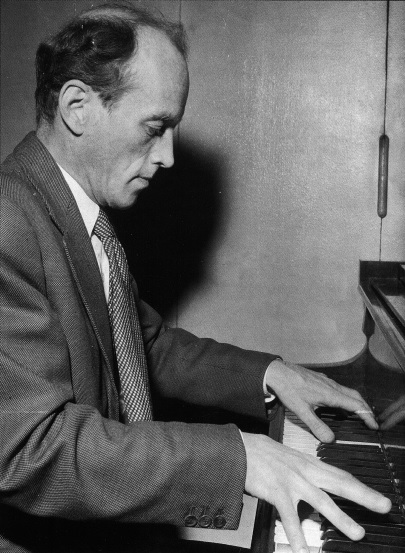
| Roles | Competed in Olympic Games |
|---|---|
| Sex | Male |
| Full name | Sven Einar•Englund |
| Used name | Einar•Englund |
| Other names | Marcus Eje |
| Born | 17 June 1916 in Ljugarn, Gotland (SWE) |
| Died | 27 June 1999 (aged 83 years 10 days) in Visby, Gotland (SWE) |
| NOC |  Finland Finland |
Composer Einar Englund was born in Sweden, but also held Finnish citizenship from his father and was a member of the Swedish-speaking minority. He was a composer and pianist and studied at the Helsinki Conservatory (today: Sibelius Academy) in Helsinki over several spells between 1933 and 1945. He received his diploma in 1941. Englund fought in Karelia in the war against the USSR and wrote his Symphony No. 1 (War symphony) under these impressions. He was the first Finnish composer who wrote orchestral music influenced by modern composers like the Shostakovich and Prokofiev. In the late 1940s and early 1950s he made study trips to the Russia, Bulgaria, and the United States, where he worked with Aaron Copland. He resolutely opposed the influences of 12-tone music, however, and did not compose for years. After his wife’s death in 1956 he also created stage and film music. From 1957-81 he worked as a teacher and then a professor of music theory and composition at the Sibelius Academy. At times, he also worked as an entertainment musician and jazz pianist as well as a music critic for a newspaper in Helsinki. Englund often accompanied his second wife, singer Maynie Sirén (1924-2003), on the piano.
With his work Epinikia, Englund won the first prize in the competition advertised for the “Finnish Games” in 1947. The approximately 8-minute long symphonic poem with the subtitle Triumphal Hymn received an Honorable Mention at the 1948 Olympic art competitions in the section for orchestral music. It is one of the few musical entries that are regularly staged and that are available on CD in several recordings.
| Games | Discipline (Sport) / Event | NOC / Team | Pos | Medal | As | |
|---|---|---|---|---|---|---|
| 1948 Summer Olympics | Art Competitions |  FIN FIN |
Einar Englund | |||
| Music, Compositions For Orchestra, Open (Olympic) |